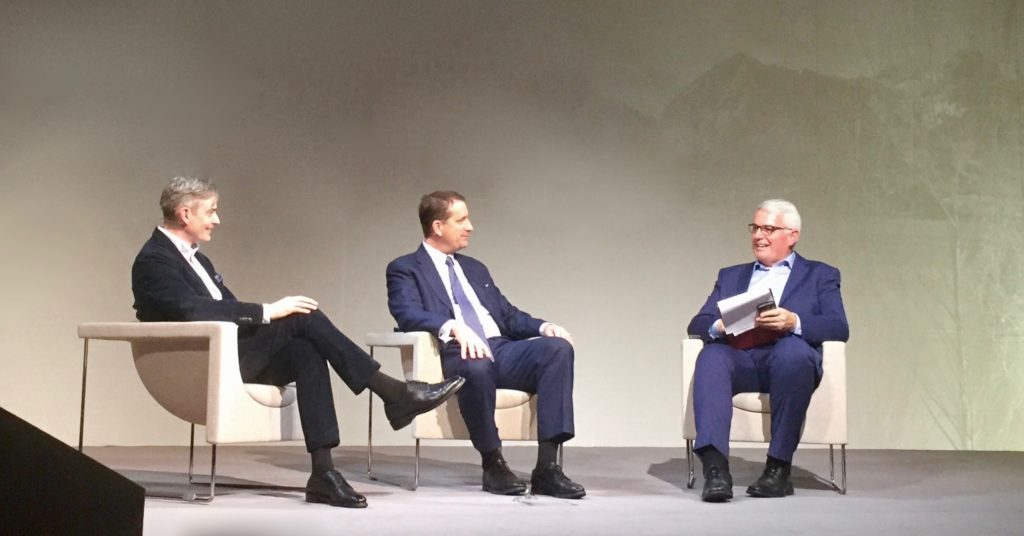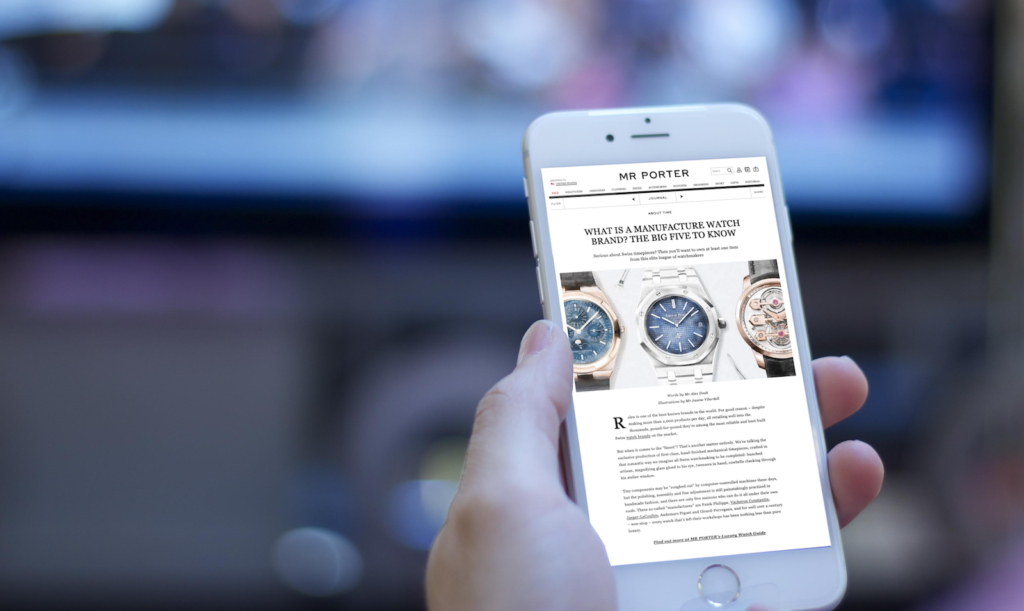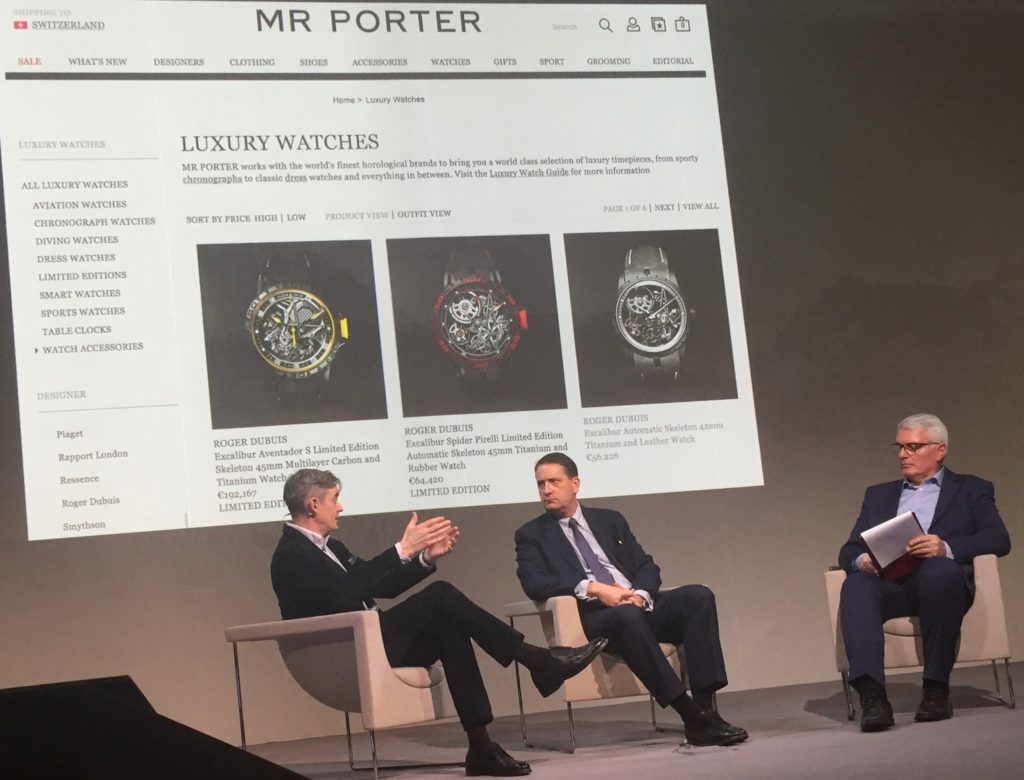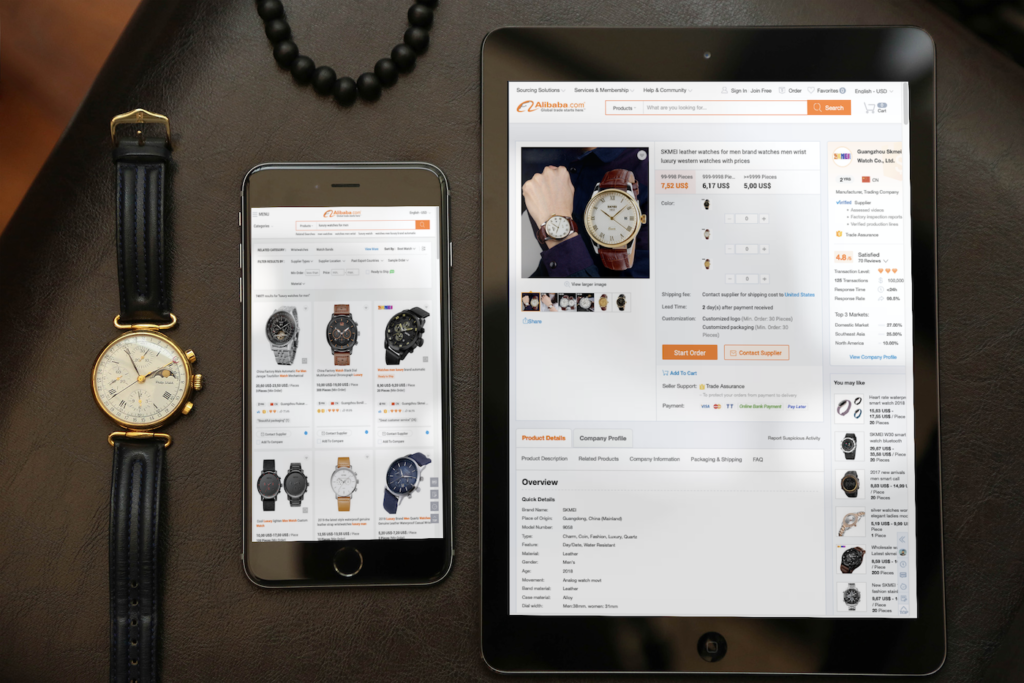How Alibaba and Mr. Porter sell luxury watches

The SIHH Salon International de la Haute Horlogerie in Geneva is the annual pow wow of exclusive watches. The dust of the event has long settled, but we take a moment to look back at some ideas Toby Bateman, MD of Luxury platform Mr. Porter and Terry von Bibra, GM Europe of Alibaba Group, shared on the high-end E-commerce game.

Mobile rules, and experience is its muse
A first key insight is that online selling is now about how it looks on mobile. In China, this is even more the case than elsewhere, confirms von Bibra. Toby Bateman adds that Mr.Porter records over 50% in engagement and revenue on smartphones and tablets, and this keeps growing at a fast pace.
When buying a luxury watch, 80% of customers first search online. And 65% of luxury goods shopping is online. Time to get it right!

Ask what they like
Many online shops are basically still catalogues. But truly efficient sales is no longer about showing products and zooming in on them: the experience has to be more meaningful. To make it authentic, you start by collecting useful data on what high spending customers like. And then you enhance each interaction with this information.
Mr. Porter for instance knows what their customers do for a living, how much they spend, and what they like. ‘Extremely important people’ can still search and buy online, but they can also call on their own expert to connect them with top brands. And of course, top brands gladly feed these private advisers with their news on launches and exciting stories.

Tell the story right
Watch aficionados are not identical to luxury fashion buyers. So, you have to adapt the content, product descriptions, and photography to suit their tastes, like matching each watch with the right context you wear it in.
The Mr. Porter website also offers a ‘Luxury watch guide’. This platform presents the history of top brands, stories and information on different lines, and adds a glossary of terms. Once the client makes a purchase, the timepiece is delivered with its own service, in the original box inside their own packaging, giving it a Bond Street feel.
Alibaba: omnichannel storytelling
Alibaba has a different approach. Instead of serving an overall experience themselves, it hands over the control of their store to the brands, so they can sell their goods online.

As a third-party platform, each seller creates their own formula for rich engagement with the customer. But surprisingly, Alibaba does not see its mission as connecting brands to E-commerce. Instead it wants to create an omnichannel experience, that helps to really connect with the consumer. And that person does not care if the purchase happens online or offline.
The question is to find the watch that has the right story, heritage, craftsmanship, quality, and style, to make the buyer feel even better about himself.
To reach the customer in today’s retail, you need to get four key elements right: selection, convenience, price and experience. Each needs to be carefully balanced, but experience simply is the most important one, especially in luxury. So Alibaba invites their sellers to examine their brand equity and value proposition. And since the answer is not online or offline, it wants to help them give the best answer everywhere.
China: soon +40% of the global luxury market
The Chinese age 20 to 40 market will soon represent 40 to 45% of the whole luxury market. They also lead in sales growth, and soon in sales – period. So logically, Ali Baba in Europe focuses on connecting European top brands with these Chinese power buyers.

Many brands underestimate the Chinese obsession for brand heritage. European luxury brands with the deepest origins in the world really need to leverage that bonus intelligently.
Watch brands have their own retail channels, but they are concerned how they channels will react when online commerce increases. Alibaba says that’s not an issue. It wants to offer insights that help to sell on any platform and in the real world, in distribution and in stores.
True and personal stories
The audience wants stories that add personality to the brand. Like in the portrait of South African adventurer Mike Horn, who was literally saved by his Panerai watch when climbing on Broad Peak on the Pakistan/China border. Another example is the film for IWC with Xavier Alonso. The football player tells he loves watches, but was not even an ambassador for IWC at the time. This real story attracted over 1.2 million YouTube views and generated top traffic to the watchmaker’s website.

The key message for watch brands: engage with your audience on a real level. True stories make luxury buyers swing towards your brand instead of another one.
Our recent blog posts
See all blogs-
How is AI’s synthetic data enhancing User Experience Research? Technology

-
Web3.AI Rising : How new technology can add value to your business

-
How generative AI helped us create an e-commerce app – with personalised content – in just 2 weeks Technology

-
Can you build a foodie app in 3 days using Generative AI? (Spoiler alert: yes!)

